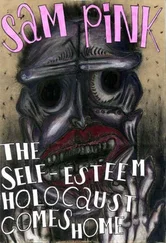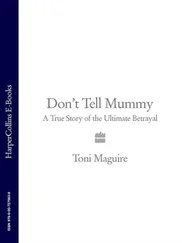Our hearts might belong to us but we have very little control over where they go and Antoinette was no different; one moment, she wanted to hate her mother and the next, she longed to be comforted by her and have her love returned.
But she couldn’t accept the answers to the questions she asked herself. She felt ill at the thought that just a few feet away from her bedroom, her parents had shared a bed again.
Had they had sex, she wondered. The idea that Ruth might have done willingly what she had been forced to do made her shudder. And worst of all, she knew that if her mother was willing to have her father back in the house even for a moment, it meant that in a few months’ time, when he was released, she would welcome him back for good into the home she shared with Antoinette.
The sense of security which she thought she had found disappeared; the bottom fell out of her world and she felt herself falling into an abyss of unbelieving despair. That morning the feelings of betrayal became firmly fixed in her mind and no amount of will-power could make them disappear ever again.
During the weeks after her father’s return to prison, a barrier of distrust replaced the warmth of friendship between Ruth and her daughter. There was an invisible wall between them, this time constructed by Antoinette. The betrayal she had felt when she saw her father sitting in their living room was too much for her to overcome and she wanted to get out and run away as far as she could, but she knew that was not an option open to her.
Now that she had amassed some savings to put towards her dream of secretarial college, Antoinette still wanted to follow her plan of working away for the summer despite her experience on the Isle of Man. Hundreds of Irish girls would leave their homes to work the summer season at the holiday camps, hotels and guest houses of the mainland. With accommodation and all meals provided, along with high wages and good tips from happy holidaymakers, they could return with a substantial sum of money.
She’d already got a job at Butlins lined up for the summer season and her father’s date of permanent release, eighteen months earlier than the sentence handed down, was due before her departure. Could she bear staying at home after he had joined them there?
Up until now, she had not wanted to leave her mother, but faced with her perfidy and the prospect of having to share a house with her father, she longed to go. But if she left before she had earned enough money, she would use up her savings and have to say goodbye to funding further education. Without those all-important secretarial qualifications, she knew she was looking at a future of waitressing or shop work.
‘What choice do I have?’ she asked herself. She would be homeless. Nobody would rent a room to a girl who was under eighteen, even if she could have earned enough to support herself.
The money she could earn at the camp, though, added to what she had already saved, would pay for the secretarial course she so desperately wanted to take. With qualifications, she would be free to leave home, get her own flat in Belfast and be independent of her parents.
I’m frightened for my future, she told herself. I’ve seen too many middle-aged women trying to scrape a living by working long hours in second-rate restaurants, while the younger girls are given plenty of work at the better places where tips are high. Her jumbled thoughts scuttled around in her brain until she saw she had no option but to stay.
Every Saturday morning since Antoinette had lived at the gate lodge, she had seen the billowing white furls of the dance marquee being erected in an enterprising local farmer’s fields. On a Saturday night, she had heard the beat of a band as the music floated in the evening air. She would lean out of her bedroom window as far as she could, straining to hear more while she looked longingly at the huge tent. Lit up by the many lights inside, it glowed against the dark of the sky, looking for all the world like a giant illuminated marshmallow.
She knew that in there, young people entered their own world where they had their own music, wore their own fashions and had fun. As she craned out of her bedroom window, she remembered what her mother had to say on the subject.
‘Nice girls don’t go to such places, dear. If a boy wants to take you out then he comes to the house and collects you properly. You certainly don’t go looking for him in there.’ Ruth would always add her strange humourless laugh to her pronouncement and smile her bright, empty smile.
Whenever her mother said this to her, Antoinette always replied obediently, ‘No, Mummy’, and was content to stay in with her mother, spending the evening pleasing Ruth by keeping her company.
Thing had changed now, though. Now she wanted to be part of that world she could see through her bedroom window. She wanted to go to the marquee. Weekends were going to become party time for her; she was going to mix with other teens and live as they did. She was certain that other girls’ lives were not centred on their mothers but on fashion, makeup and weekend dances, and she wanted the same.
Antoinette looked at herself in the mirror, giving her reflection a cool, appraising look. She knew she was different. Even apart from her English accent, her clothes were old-fashioned and her dark brown hair, falling almost to her shoulders in a page-boy cut, was more suitable to a fourteen-year-old than a girl of seventeen. It was all down to Ruth’s influence.
Not any more, thought Antoinette wistfully. I want to be like other girls. I’m going to be fashionable.
She thought of the groups of happy, confident young people she often served at the coffee bar when she worked the evening shift. The boys with their neatly cut hair, dressed in jackets and well-pressed trousers, might look like younger versions of their fathers but the girls had created their own style, one that looked as though it had very little to do with their mothers. Their hair was teased into the new fashionable beehive, and their faces were coated in a pale pan stick that contrasted harshly with their black-lined eyes which peered out at the world through thickly mascaraed lashes.
Antoinette’s skin saw only a flick of powder, her lips wore a natural pink lipstick and her eyes were only enhanced by one coat of mascara. This set her apart from her contemporaries almost as much as her clothes did.
I’ll start at once, she decided.
The glamorous, swinging sixties had begun and with them came a new affluence. Blue-collar workers became part of the middle classes and housing estates sprung up everywhere, offering young couples the chance to own their box-like house, identical to all the others nearby. Cars were parked outside every house, television aerials decorated every roof and the words ‘hire purchase’ replaced ‘debt’. This was a boom time, and it brought with it a new youth culture that Antoinette longed to be a part of. Teenagers had found an assurance their parents had never known, and in their leisure time they danced to the new rock ‘n’ roll, went to cafés, drank cappuccinos and talked confidently together. They refused to be younger versions of their parents and instead invented their own fashions and attitudes.
These were the people Antoinette wanted to mix with and to do so she knew she would have to change. She could do little about her English accent but she could certainly change her appearance.
A very different Antoinette began to emerge. She bought tight dresses and hid them at the back of her wardrobe, along with stiletto-heeled shoes and new underwear. A hairdresser recommended by one of her youthful customers worked his magic and made the neatly cut dark brown hair disappear. In its place was a back-combed beehive. Plucked eyebrows now accented eyes that had grown harder, and a loss of appetite turned her once-plump shape into a more fashionable slim one.
Читать дальше












